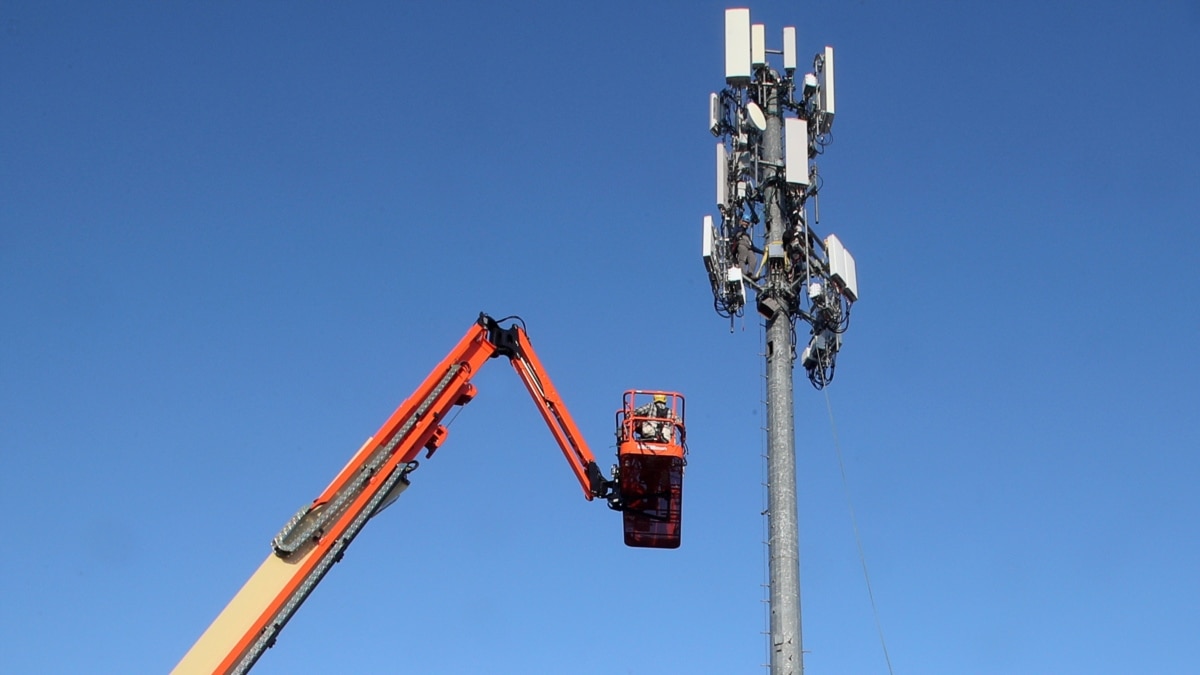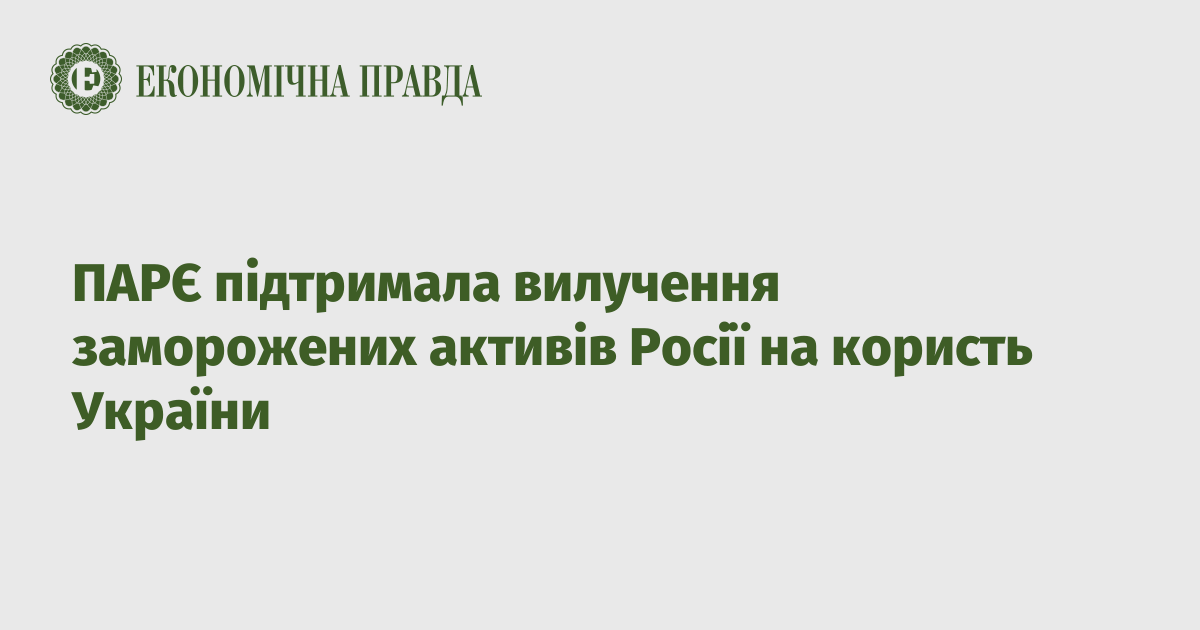The USA and Ukraine agreed on cooperation in the field of telecommunications and 5G

During the first nine months of the war, Mykolaiv was a front-line city. It was constantly shelled by artillery and Russian troops tried to occupy it more than once. Mykolayiv persevered and received the title of “hero city”. On the anniversary of the full-scale invasion, “Voice of America” spoke with the mayor of Mykolaiv, Oleksandr Senkevich. He told Lesya Bakalets about the damage from the war, the lack of fresh water in the city of almost half a million people, and the plans for reconstruction.
Subscribe to Voice of America in Ukrainian in Telegram.
Lesya Bakalets, Voice of America: I think that on the eve of the anniversary of the war, every Ukrainian remembers how it all began. What do you remember?
At five in the morning, I woke up from an explosion and thought that something had happened at one of the factories in Mykolaiv. Somehow intuitively I understood that a war had begun, but I did not want to believe it
Oleksandr Sienkovych, mayor of Mykolaiv: On the eve of February 24, I met with friends. I turned 40 years old and celebrated my birthday with different people for several days. February 23 was one of those days, a Wednesday, we met in the evening, we talked about the alleged attack, about the confiscation of weapons. Most people thought that it was the influence of the foreign press or the promotion by other countries of the situation around Russia with the use of Ukraine in these political games. Therefore, we agreed that there should be no war and went home. At five in the morning, I woke up from an explosion and thought that something had happened at one of the factories in Mykolaiv. Somehow intuitively I understood that a war had begun, but I did not want to believe it.
LB: Did you have an alarming suitcase?
O.S.: There was an alarming suitcase. Understanding that the war could be, in the worst case scenario, I bought canisters a few weeks before, filled them with diesel, put them in the car, put the trunk on top, we already had some things collected. Therefore, on the 24th, I gathered my family, sent them out of town and went to work.
LB: And what was the first thing the city mayor did in his workplace in such a situation?
O.S.: First of all, any problems, including during war, begin with a lack of communication. So we used online walkie-talkies to communicate. And we still use it. This is a very reliable and cool tool. On the second day, I gathered all services in the city council. Said we should leave this building because it could be one of the targets for the attack. On the third day of the war, we had already completely left the building, in fact, only the guard remained there. Everyone worked remotely. And so the war began.
LB: Mykolaiv was a front-line city until the liberation of Kherson Oblast in November. Can you tell now how many times Mykolaiv was one step away from occupation?
O.S.: I can say that there was such a risk at the beginning – probably on February 26, 27, 28. That is, they [російські війська] were on the prowl, and our troops, I won’t say how, maybe it’s a secret, but they managed to push back the Russians, break their plans for a quick attack on the city. From the first day we started preparing the city. Take him into a ring, dig trenches, put up roadblocks, as it was done once in 2014. Mykolaiv is surrounded by a system of irrigation canals, we flooded these canals with water so that Russian equipment could not enter. The military blew up some bridges in order to slow down the enemy’s offensive.
From the first day of the war, I told all the people of Mykolaiv that they should leave the city. We see today what happened to Mariupol and other cities. 186 people died in the city of Mykolaiv during the entire war. This is a lot if we are talking about people. But in terms of the war, this is a small number, because the victims could have been much more.
LB: And then many left.
O.S.: Yes, a lot – from 480 thousand people before the war, during the war we numbered about 220-230 thousand. But now they are returning. There are already 350,000 in the city, there are even traffic jams elsewhere.
LB: During all this time, when were you really scared?
O.S.: Probably in the early days. And then, I didn’t show it. Then there was no understanding of what was happening. We saw and heard about the war only in historical films. I am often asked: what were you thinking about, what were you worried about? But we just acted, there was no time to think about why this happened to us. They simply answered the question “what should be done?”
LB: At some point, you probably got used to explosions?
Before the liberation of Kherson on November 11, Mykolaiv was not shelled for only 46 days during the entire war. We counted: one day, two days, the third day without explosions – and an explosion! The record is 38 rockets that flew into the city
O.S.: Yes. It must be said that before the liberation of Kherson on November 11, Mykolaiv was not shelled for only 46 days during the entire war. We counted: one day, two days, the third day without explosions – and an explosion! The record is 38 rockets that flew into the city. We built such a security system that we understood during the explosions at night, where exactly the rocket was coming. We communicated with the special services, the emergency services went to the place. And already in the morning, our services worked on cleaning. Journalists asked us not to clean up very quickly, because they arrive at the site of the explosion at 9 in the morning, and everything is being cleaned there from 5-6.
LB: In your opinion, how did the city hold up?
O.S.: Mykolaiv was awarded the title of hero city for the fact that we withstood this offensive. But we are in Mykolaiv, we say that we are not a hero city, we are a city of heroes. Many people in the city took up arms, some went to form humanitarian headquarters, began to build checkpoints. I remember that evening, when we already saw that the column was moving towards us, how the townspeople pulled the wheels, formed different lines of defense inside the city. This is how it turned out: the military, civilians, city services, state services, everyone knew what they were fighting for.
LB: The “Russian world” plan in the predominantly Russian-speaking Mykolaiv failed, it seems, from the very beginning.
O.S.: 70-80% of Mykolaiv residents use Russian as their main language of communication. But when it all started, no one had any doubts about who the enemy was. Those who still have doubts are separatists. We have markers: when a person says “they don’t tell us everything”, “but we don’t know everything”, “who bombed Donbass for 8 years” – all this is a marker: “a possible collaborator of Russia”.
LB: I saw the figure that the damage to the city from the war is estimated at 900 million euros.
O.S.: We want to become a pilot project for the correct accounting of these losses. This is far from the final figure, because there are still a large number of destroyed private houses, and it does not include environmental damage.
LB: How exactly does Denmark, which has taken over the city, help and will help?
O.S.: We divided the aid to Denmark into two directions. One is urgent, and one is strategic. Urgent – they helped us starting with the purchase of plywood to block the windows. Because there were no people in the houses, and the heating season had to be started, it was impossible to use glass, because there were constant explosions, it flew apart. Therefore, we decided to use plywood. Then we have a water problem and Denmark helped us with the purification system. The problem with heat – provided diesel generators and modular mobile boiler rooms.
We don’t want to be some relative who constantly calls “please lend me another two hundred hryvnias.” We want to be a partner on whose territory new productions will be created, they will make money, because business is about money
The strategic issue does not only concern the restoration of social infrastructure, this issue concerns investments. I told them that we don’t want to be some relative who constantly calls “please lend me another two hundred hryvnias.” We want to be a partner on whose territory new productions will be created, they will make money, because business is about money. And we need to create jobs. So that our people could earn money, could spend it on apartments, cars, and food. Today, Denmark can become an example for other countries in cooperation, in support for the restoration of individual regions or cities. I am very happy that we have a very serious cooperation.
LB: Regarding water – let’s remind you: Mykolaiv has had problems with water supply since April last year.
As I was told, the Russians thought that Ukrainian troops would enter the territory of the occupied Kherson region through these pipes, so they blew them up, in four places
O.S.: On April 12, rockets destroyed the water intake. As we later found out, they blew up our pipes on purpose. We took water from the Dnipro River, which is 73 kilometers from Mykolaiv. These are two such large pipes with a diameter of 1.4 meters that a person can walk through. As I was told, the Russians thought that the Ukrainian troops would enter the territory of the occupied Kherson region through these pipes, so they blew them up, in four places. We repaired the pipes (after the liberation of Kherson Oblast – GA), but they moved to the other bank of the Dnieper and began shelling the water intake station. That is why we still have problems with water.
L.B.: Does that mean there is still technical water in the waterworks – salty water from the Buzky estuary?
O.S.: Yes, relatively speaking, purified sea water flows from our tap, it is salty. When you put it in your mouth, you feel the salt. You can’t eat this water, you can’t drink it, you can do everything else. Therefore, we create separate water intake points, about 150 of them, and use them for drinking water.
LB: I understand that this is almost the first time in history that such a large city is completely without fresh water in the water supply?
O.S.: Yes, we are working to diversify the water supply system in Mykolaiv and are looking for an alternative water supply and purification system. This system may be expensive but temporary. That is, cheap water – on a permanent basis. If something happens (with water supply from the Dnipro – GA), there is an expensive way, expensive, but everyone will be with water. Today, there is no alternative.
LB: Because of the salt water, the pipes in the city’s water supply are damaged. Will it be necessary to change everything?
O.S.: Yes, everyone. You can count in kilometers, in years of work, in money – it’s all long and expensive, unrealistically expensive. The main thing that destroyed our pipes was salt water. The number of breakthroughs increased 20 times. Water flows everywhere in Mykolaiv, constant breakthroughs.
LB: Are there any deadlines – when will the residents of Mykolaiv have water?
O.S.: If you answer me when the war is over, I will tell you about the deadlines. No one can say this yet.











